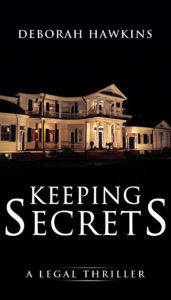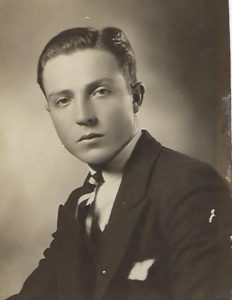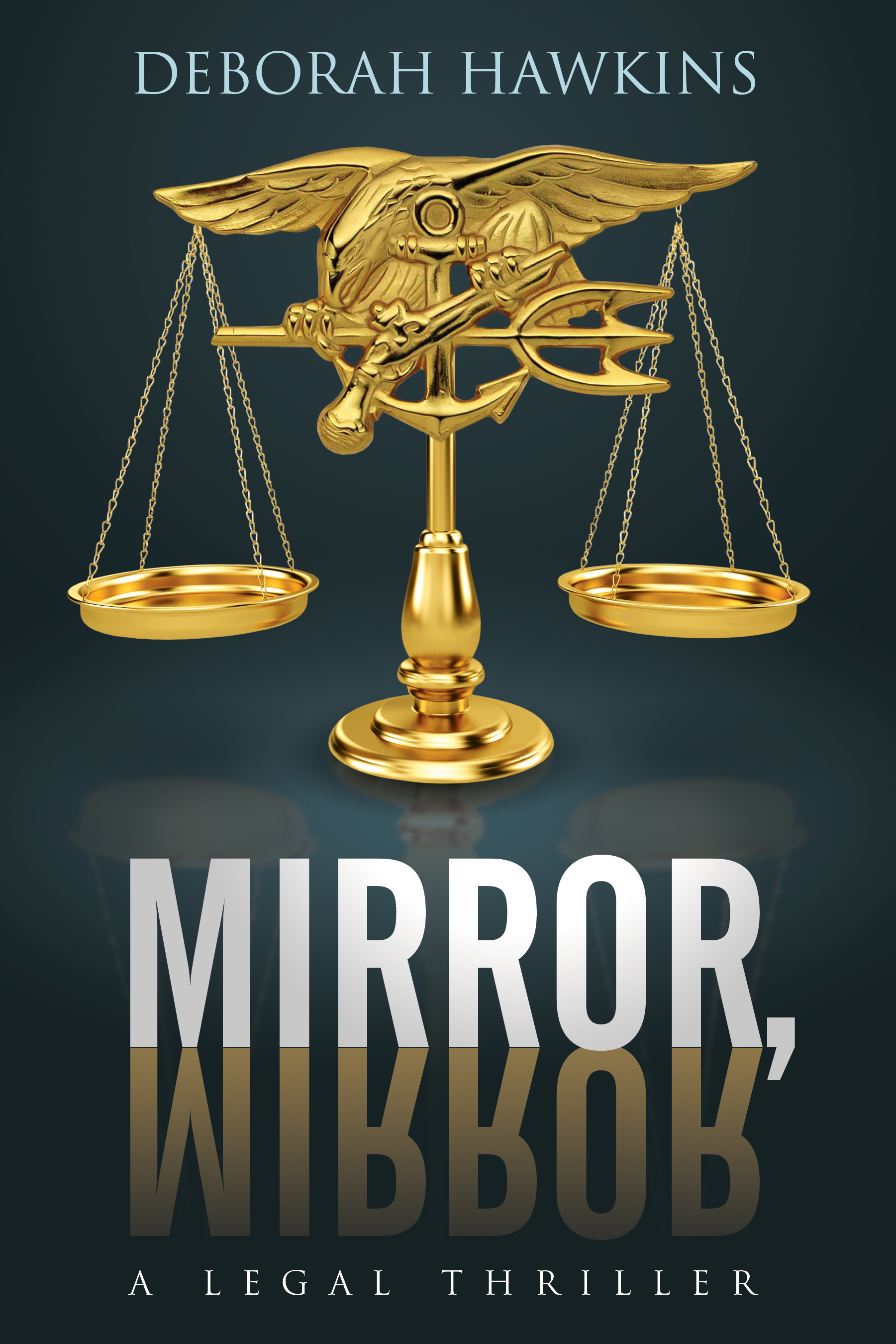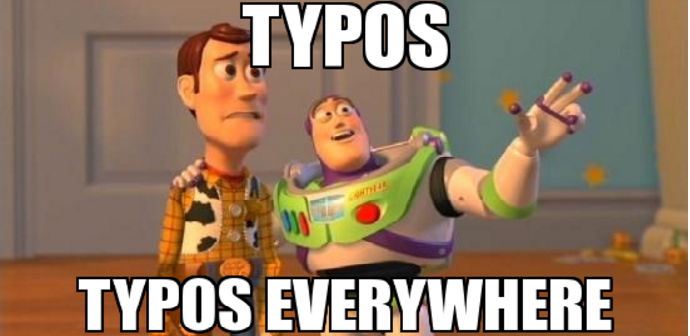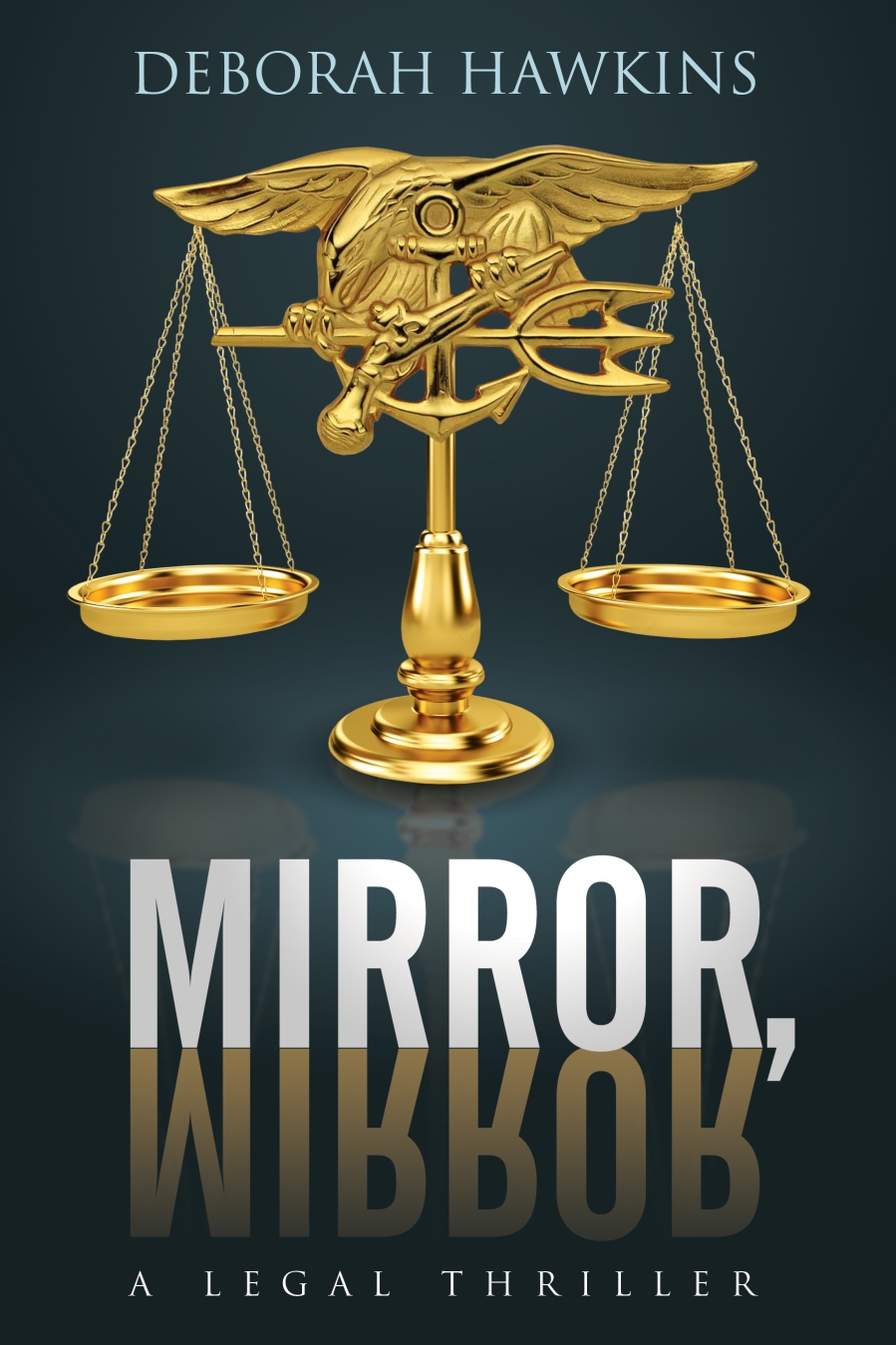
Preorder for release on March 9 at http://www.amazon.com/Dark-Legal-Thriller-Deborah-Hawkins-ebook/dp/B01BTR8Q44/
CHAPTER ONE
First Weekend of August 2013, Friday Night, La Jolla
She was sitting at the bar, staring at the full moon over the glass-smooth, night-black Pacific. Her back was toward him, but Jim Mitchell could see her reflection in the mirror behind the bar. Her dark hair was very short like a child’s pixie cut, and she was all eyes. They were the saddest brown eyes he had ever seen as they gazed through the window at the blank ocean.
Judging by her long, elegant legs and graceful posture, he guessed she was a model or a dancer. But no, he told himself. Models and dancers don’t hang out at La Jolla’s exclusive Trend Bar in conservative black couture suits and impossibly expensive white silk blouses. She was obviously a business woman. A retired model, he decided, who now ran her own modeling agency. He was glad he’d worn his business casual tan chinos and thrown his navy sport coat over his white oxford shirt. She didn’t look as if sloppy appealed to her.
She was lost in thought, and she didn’t turn when he slid onto the seat beside her. He wondered what such a beautiful woman was doing alone on a bar stool at nine p.m. on a Friday night, and he wondered how many of the losers several stools away had tried to gain the place he now occupied. And he wondered how long she would let him hold it.
“Mind if I sit down?”
“Help yourself.” Her eyes riveted on his, still sad but now guarded. He noticed a long scar snaking across her left cheek. He guessed it must have ended her career in front of the camera. She watched him glance down at her left hand.
“If I were married, I wouldn’t be here.”
“Me, either.” The bartender shifted from one foot to the other, waiting for his order. “Martini, two olives. And may I get something for you? Your glass is just about empty.”
“Another one of my usual.”
Satisfied, the bartender scurried away to earn his tip.
“If he knows your usual, you must come here often.”
“Not an original pickup line. Besides, you had me at ‘mind if I sit down.’ My office is just down the street. I like to come by on Friday night to wind down.”
“But happy hour is long over.”
“I don’t do happy hour. Too crowded.”
“Me, either.”
“Is your office just down the street, too?”
“No. I work out of my home in Pacific Beach.”
“Then why aren’t you in a bar in Pacific Beach?”
“Too loud. Too noisy. And I’m too old.”
He saw the first glint of amusement in her dark eyes. “You don’t look too old.”
“I’m forty-two. That’s too old for twenty-something coeds.”
She laughed, a deep honest laugh that he liked. “I know plenty of men your age who wouldn’t agree with that.”
“They have their preferences. I have mine. If I feel like a drink on Friday night, I drive up here. What about you? You could be down in PB with the party crowd.”
Her eyes became serious, but her tone remained light. “Too old, too.”
The bartender appeared with their drinks, and he noticed her “usual” was red wine.
“To Friday night! I’m Jim Mitchell, by the way.” He held up his glass.
“Sarah Knight.” And she lightly touched his glass with hers.
Afterward he said, “I’m not believing the ‘too old’ stuff about you.”
“Thanks, but it’s true. I’m four years ahead of you.”
“You look ten years behind me.”
She smiled. “I’ve finally reached the point where that’s an advantage.When I first started out as an attorney, no one took me seriously.”
“You’re an attorney?”
“Don’t sound so surprised. Lots of women are these days.”
“No, no. I didn’t mean that. I took you for a former model, now head of her own agency.”
Sarah threw back her head and laughed. “Now that’s a first. Thank you, I think. Ever heard of Craig, Lewis, and Weller?”
“Sure. They’re big time rivals of my old man’s stomping grounds, Cravath, Swain, and Moore.”
“Well, I went with Craig, Lewis out of law school– ”
“Which was Harvard, I bet.”
“Wrong, Yale. And I became a partner in their white-collar crime section eleven years ago.”
“A woman who looks like a model and who does white-collar crime. This has got to be a movie. I would never have guessed.”
She smiled. “I think looking like a kid gave me an advantage in front of juries, particularly with the female jurors.”
“So what brought you to San Diego?”
“I got tired of New York winters.”
“I can relate to that.”
“If your dad was a Cravath partner, you obviously grew up in New York.”
“Well, not in the city. We had the regulation big house in the Connecticut burbs.”
“And you are Jim, Junior, and your father wanted you to follow in his footsteps.”
“Now, I think you’re psychic. James Chapman Mitchell, III. He sent me to Andover because it was his prep school, and he sent me to Brown because it was his college, but I rebelled and went Georgetown because it wasn’t Harvard, his law school.”
“And did you go to work for Cravath?”
“For one miserable year. And then I joined the FBI.”
“It’s difficult to see that as an act of rebellion.”
“As far as my father was concerned, it was.”
“Why’d you pick the FBI?”
“I wanted to put the bad guys away. I thought it would give some meaning to my life.”
“And did it?”
“Too much meaning as it turns out. I got very caught up in my work. Finding a lead in a cold case was like an addiction. But my partner, who was single, had no trouble leaving work at six o’clock to hang out with my wife, who was tired of sleeping alone.Five years ago, Gail handed me the divorce papers and put Josh’s ring on her finger instead of mine.”
“Sounds tough.” Her eyes were unreadable again.
“The toughest part is being away from my son, Cody. He’s thirteen, and I only get a few weeks with him every summer. He’s just gone back to Baltimore where his mother lives. What about you? Ex-husbands? Children?”
“No time. Remember I made partner at a Wall Street firm at thirty-five. I couldn’t date my clients, and I don’t like office romances. That left the dry cleaning delivery boy and the kid who brought Chinese takeout when I got home before midnight. And I don’t do younger men.”
“Darn. And I was just getting ready to proposition you.”
“An ex-FBI agent propositioning a criminal defense attorney? In what universe?”
“This one. I’m a private investigator now. I had to leave the Bureau after Gail married Josh. I saw and heard too much, and I couldn’t take it. I’m still in love with Gail, in case you haven’t noticed.”
“I noticed.”
“I moved out here to get a fresh start. I literally closed my eyes and stuck a pin in the map. And San Diego it was. Here’s my card. I’m really good. You never know when you might need an outstanding gumshoe.”
She took the card in her long, graceful elegantly manicured fingers and studied it for a moment. She seemed to be thinking something over. Finally she said, “Actually, I do need someone.”
“I can’t believe my luck.”
“You might not think that when I tell you about the case.”
“Try me.”
“Do you know who Alexa Reed is?”
“Sure. The daughter-in-law of United States Supreme Court Justice Coleman Reed. She was arrested on June 3 for the murder of her husband, Michael, who was a partner at Warrick, Thompson, and Hayes, and a psychologist, Ronald Brigman. She and Michael were locked in a bitter custody battle for their two children. Brigman seems to have been on Michael’s side. The papers say Alexa was losing custody even though she had given up her career at Warrick, Thompson to be a stay-at-home mom. She snapped and killed Brigman and her ex.”
“I was appointed to represent Alexa today.”
“Wow! That’s going to be a tough one.”
“You have no idea. There’s a lot more, but I can’t talk about it here in public.”
“Of course not.”
“Are you in?”
“Definitely. Hey, I know a great little restaurant where we can talk. Tomorrow night at seven.”
“Ok. And where would that would be?”
“My place. Here’s the address.”
* * *
First Weekend of August 2013 – Saturday Night, Pacific Beach
Her second thoughts about Jim Mitchell began the moment she walked out of Trend, and they continued as she rang the bell at his Pacific Beach bungalow the following night. The house stood out from its beige stucco neighbors in a fresh coat of olive green paint with bright red begonias smiling from the flowerbeds. Not only did he seem strong and wise, seasoned in the ways of the world and his own man, he also appeared to have an artistic streak. She liked him; but, at the same time, she questioned her decision to hire him. This was a new experience for her. She had advanced in the competitive world of Craig, Lewis because she was smart and because she had excellent judgment. She rarely had any reason to think twice once she’d made a decision.
But Jim presented a number of challenges beginning with his dark hair, decisively dimpled chin, and firm, square-jawed good looks. He was six feet, two hundred pounds of well-honed muscle that any woman would have found attractive, and she never dated or slept with anyone she worked with. It was a rule set in stone. And even though Jim’s background meant he knew his way around the tough world of criminal defense, he had the kindest brown eyes she had ever seen. Their empathy tempted her to open up about herself in a way she would never have considered with anyone else. But never looking back was another implacable rule. Finally, his honesty about his responsibility for the loss of his marriage and his love for his former wife surprisingly tugged at her heart, an organ that was nearly impossible to touch after years spent turning herself into one of the toughest lawyers on Wall Street. So Sarah considered telling Jim Mitchell the deal was off as soon as they had settled down to dinner on his charming patio in the remnants of the soft summer evening scented with ocean breeze and night-blooming jasmine.
But she hesitated. He was not the average private detective. Even his dress that night was not average California casual. No slouchy knit shirts and faded jeans. Instead, he wore an I-mean-business blue oxford cloth shirt, sleeves rolled back to the elbows, and impeccable tan linen slacks. Everything about him broadcast confidence and professionalism. If she searched the entire West Coast for an investigator to work on behalf of Alexa Reed, she couldn’t do better than Jim. And loyalty to her client was, according to the cannons of legal ethics, her top priority.
“Where did you learn to cook like this?” She had just tasted the lamb chops in a delicate mustard cream sauce with tiny peas and braised leeks.
“You were expecting steaks from the butane grill.” His eyes teased her.
“Most definitely. You do not look like a sous chef.”
He grinned. “Thank you, I think. My mother came from old money. Her father was an investment banker and a Cravath client. She insisted on having a professional chef. I liked hanging out in the kitchens and learning about cooking. Drove my old man nuts because he was afraid I’d go to culinary school.”
“You’d have been very successful.”
“Doubtless. But in the end, I wanted to catch the bad guys more.” He smiled. “My cooking skills came in handy when I was living on a government salary and couldn’t afford five-star restaurants.”
“And now you can?”
“In theory. My father died three years ago and left me, his only child, his fortune along with my mother’s money. In trust, of course. But the monthly payments have made me financially independent. It’s unlikely I’ll ever need to touch the capital.”
“So why keep working? And on the side of the bad guys?”
“I keep working because I love doing investigations. Every one is a new story, with a new plot, and new characters. And the clients aren’t ‘bad guys.’ They’re innocent people I’m keeping out of prison. I’m still on the side of justice. Tell me about Alexa Reed.”
Sarah sighed and traced patterns on the base of her wine glass with one finger.“In the interests of full disclosure, I should let you know I didn’t want this case.”
“How’d you get it, then?”
“When I left Craig, Lewis and set up shop out here alone, I brought a few clients with me who are based in Los Angeles. One was accused of masterminding a Ponzi scheme, two others were indicted for insider trading, and the fourth was on the hook for racketeering.”
“Isn’t defending clients under the Racketeer Influenced and Corrupt Organizations Act a speciality of yours?”
She felt herself stiffen and hoped he didn’t notice. “I’ve done a few RICO cases, that’s true.”
“But you won one of the most influential and toughest cases of all time, the Joey Menendez case.”
Sarah’s mouth went dry at the name, and she gulped a sip of wine to make her tongue work. “How’d you know about Menendez?”
“It’s famous throughout law enforcement. You persuaded a jury to acquit the head of the Menendez drug cartel of six counts of murder for hire and twenty counts of extortion. No one ever thought that would happen, including the U.S. Attorney who opposed you. What’s wrong? You look upset.”
“No. Of course not.” But she gripped the base of the wine glass to keep her hands from shaking. He was violating one of her iconoclastic rules: don’t look back. She needed to change the subject quickly. “Anyway, I didn’t want to defend Alexa Reed.”
“So then how’d you become counsel of record?”
“In a word: blackmail. Last month I settled all but one of the four cases I started with. I’ve picked up one or two new ones as I’ve gone along, but they are all out of L.A. I haven’t developed any business in San Diego. So I put my name on the list of attorneys willing to accept trial court appointments for indigent defendants. Yesterday morning, Hal Remington, who heads the appointments panel, called and insisted I come to his office at ten a.m.”
“He couldn’t offer you the case on the phone?”
“Apparently not.” Her hands had stopped shaking, and she paused to fortify herself with a sip of wine.
“So what happened?”
“I found his office in the basement of the old Justice Building on the third try. They’ve hidden it pretty well. Remington turned out to be a scruffy version of Icabod Crane, slouched behind a desk so covered in paper, I doubt he’s ever filed anything in his entire career. He told me he was appointing me on Alexa Reed’s case, and I said no.”
Jim leaned over and poured more Australian shiraz into her class as he asked,“And then?”
“And then he said if I didn’t take the case, I’d never work in this town. He’d personally guarantee it. I didn’t know whether to believe him or laugh in his face.”
“I hope you believed him.”
“What do you mean?”
“People have their own way here. Money and influence talk.”
“But surely they follow the state bar’s ethical rules just like everyone else?”
“Some do. Some don’t. Have you ever heard of Patrick Frega?”
She shook her head.
“He was a San Diego attorney. Back in 1992, he was caught by us feds bribing two very willing superior court judges. They all three got disbarred and sentenced to federal prison. What did you tell Remington after he threatened to blackball you?”
“I told him I couldn’t take the Reed case because I’m not death-qualified in California. Alexa is facing the death penalty because it was a double murder.”
“And then what?”
“Remington said my death qualification in New York was enough, and I’d better take the case. Then he leaned over his desk and said, ‘For a woman who graduated number three in her class at Yale, you’re kind of dense. You’re getting this case because you aren’t qualified, and you’ll lose it because that’s exactly what Coleman Reed wants. He wants the woman who killed his son to die by lethal injection as quickly as possible. You and twelve citizens of this city are going to oblige him. You were hand picked because you look qualified, but you aren’t.”
“He actually said that?”
“I wish I’d been wearing a wire. I asked him what made him think I’d lose; after all, I did graduate number three, and I’m a quick study.”
“And?”
“And he said, ‘Yeah, you were editor of the law review at Yale. Big f’ing deal. That means nothing in this town. I’m It when it comes to handing out defense work. You want to survive professionally? Better not win Alexa Reed’s case.’
“When I reminded him that was unethical, he laughed and said, ‘Then go tell the state bar. You’ll never prove a word out of my mouth. There’s only me and you in this room, and I’ve been appointing lawyers for twenty years. Everyone knows me, but you’re some New York hot shot who doesn’t belong here. It’s my word against yours, and mine will win. Why don’t you go back where you belong?”
“Wow. So you took the case?”
“He made me angry. I could see if I didn’t take it, she’d never get an attorney who’d give her a fair defense.”
“Who represented her at the preliminary hearing?”
“Trevor Martin. I picked up her file from his office yesterday, but I didn’t get a chance to talk to him. I read his withdrawal motion. He claims his mother has inoperable brain cancer, but I think he just doesn’t want anything to do with Alexa Reed.”
Jim reached over to refill her glass one more time, but she put her hand over it. “No, thanks. I’m driving.”
“You can stay here. I have a guest room.”
She looked through the open french doors into his living room, full of an eclectic mix of old and new furniture, antiques, and Ikea pieces. Maple and mahogany and a few painted chairs and chests here and there. Cozy and comfortable. The kind of room you’d be tempted to put your feet up in and snuggle into a soft throw on the sofa. Jim was probably like that, too. Safe and comforting. She reminded herself she didn’t get close to men like Jim. She had one-night stands with married men, and men she’d never see again. But men who were capable of relationships were dangerous to the self-contained, tightly controlled world she had created.
Her dark eyes locked onto his mellow, softer ones. “No, thanks. And let’s get one rule very clear: I never sleep with anyone I work with.”
“I wasn’t inviting you into my room. There really are two.” He grinned, and the tension broke. “Now, tell me what we’re up against.”
“June 2 was a Sunday night. Meggie, who’s six and Sam, who’s five, were with their father at his house on Mount Soledad in La Jolla. Alexa was alone in her rented place in Pacific Beach. Ronald Brigman, who lived about ten minutes away from Michael, had a surveillance camera recording traffic at his front door. The video footage shows Alexa arriving alone at nine p.m. but doesn’t show her leaving. Brigman was killed around eleven, and Michael was shot about twenty minutes later. Around eleven- fifteen, Meggie’s cell phone called Alexa’s. Alexa’s phone pinged off a cell tower that shows she was close to Ronald Brigman’s when Meggie called. Within ten minutes of the call from Meggie’s phone, Alexa’s cell was dialing 911 from Michael’s house. She told 911 she’d arrived to check on the children and had found him dead. The Glock .9 millimeter used in both murders was registered to her and was found next to Michael’s body. There were two DNA profiles on the gun: hers and Michael’s. Ballistics show five bullets in Brigman, and four in Michael, all from that Glock. That’s all I know so far. I’m meeting with Martin at ten on Monday morning.”
“Do you want me there?”
“No. I don’t expect him to be a witness in her case, and he’ll open up to me better if we’re alone. But I’m going to the jail to see Alexa on Tuesday afternoon. I’ll need you then. Two o’clock”



